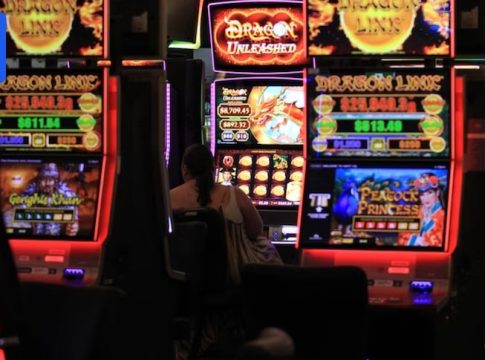Understanding the Impact of Gambling on Mental Health
Gambling addiction is often dismissed as a personal failing, but its effects ripple through families and communities, creating significant emotional and financial distress. Louise, a pseudonym to protect her identity, reflects on the profound impact of her mother’s gambling addiction, one that began when Louise was just a child. As she reaches her 40s, her story serves as a poignant reminder of the vulnerability and instability that often accompany gambling-related harm.
The Family Crisis: A Personal Account
Louise’s childhood was marked by the unsettling experience of losing not only material items but also her home. "I came home one day when I was 14 years old to find I didn’t have a home anymore," she shares. Such instability fostered a complicated relationship with her mother during a time when her love was entwined with feelings of betrayal and confusion. The consequences were devastating, not just financially, but on their family’s emotional fabric.
It’s important to understand that gambling addiction can lead to material deprivation, emotional turmoil, and family breakdown. Many families are left grappling with both the immediate and long-term effects on mental health.
Financial Burden and Mental Health
Recent studies indicate that gambling harm in Victoria, Australia, has escalated to an alarming $14 billion in a single year. This staggering figure encompasses various dimensions of harm, including:
- Financial Impacts: Excessive gambling can result in bankruptcy and significant financial repercussions for individuals and families.
- Emotional Strain: The psychological toll includes anxiety, depression, and a tragic increase in suicides linked to gambling-related distress.
- Community Effects: Local economies may suffer, especially in areas already facing socio-economic challenges.
According to Louise, the normalization of gambling in society has created an environment where its consequences are often overlooked. "I don’t feel like they take the serious amount of harm that gambling produces for communities seriously enough," she cautions.
The Need for Reform: Community Voices
Advocates for gambling reform emphasize the urgent need for legislative action to mitigate the damage caused by gambling addiction. The call for a mandatory pre-commitment system, which requires players to set loss limits before gambling, points to a proactive approach in protecting vulnerable individuals. Despite prior commitments to implement such controls, delays in reform continue, often influenced by political pressures and economic considerations.
The conversation surrounding these reforms is crucial, as it revolves not only around individual gamblers but also their families, workplaces, and communities at large.
Moving Towards a Healthier Future
As discussions surrounding gambling reform progress, it’s essential to stay informed and engaged. Here are some practical steps individuals can take to address gambling-related harm:
- Educate Yourself: Understanding the signs of gambling addiction can help in identifying the issue early. Common signs include patterns of secrecy, financial problems, or changes in mood.
- Seek Help: If gambling is affecting your life or the life of someone you care about, encouraging open conversations and seeking professional support can be transformative.
- Advocate for Change: Engaging with community resources and voicing concerns about gambling policies can create a larger impact while fostering community resilience.
In conclusion, Louise’s story illustrates the complex and often hidden ramifications of gambling addiction. By fostering awareness and understanding, we can work collectively to create a safer, healthier environment for all. Conversations about gambling addiction need not only be about individual struggles but should encompass the communal and societal responsibilities we share. Together, we can break the cycle of harm and support those affected with empathy, education, and actionable steps toward recovery.

Covers wellness, nutrition, mental health, and daily life tips.
Bio: Talia brings a background in health journalism and holistic living to help readers live better, one tip at a time.

